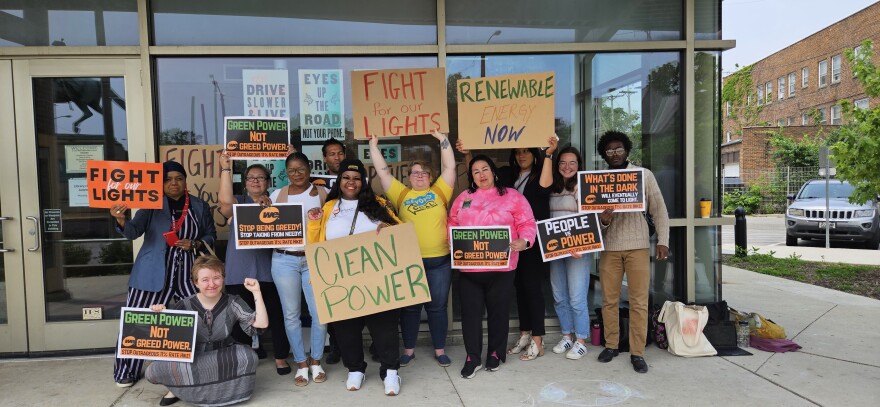A process is underway to find a method to limit We Energies' electric and heating bills to a set percentage of customers' income.
Last year, when the Public Service Commission of Wisconsin approved a controversial rate hike for the utility, the PSC also ordered We Energies, consumer and community groups to work on developing alternative assistance programs for lower-income ratepayers, including a potential Percentage of Income Payment Pilot (PIPP.)
Antonio Butts of Walnut Way Conservation Corporation says many low-income households have a tough time keeping the lights, furnace or air conditioner on.
"Especially for folks who are in that income bracket of, say, less than 50-thousand dollars per year. Anybody who pays more than six percent of their income toward utility bills is considered energy burdened," Butts tells WUWM.
Montre Moore of the Wisconsin Environmental Justice & Infrastructure Initiative says the burden could worsen as the climate warms and more people need air conditioners or indoor fans.
"There's going to come a point where it's just important to be cool, as it is to be warm in the wintertime," Moore says.

Wednesday, the PSC held two meetings in Milwaukee to gather input on low-income ratepayer assistance programs. At the Washington Park Library, Bryan Rogers of Walnut Way told PSC staff how he felt when the We Energies rate hike passed last year took effect in January.
"We say, how is it possible that the price of energy is going up, faster than my income is growing?" Rogers says.
The state of Wisconsin does offer some ratepayer assistance, and We Energies spokesperson Brendan Conway says the utility's Lift program helps low-income people behind on their bills.
"Depending on your arrears, we go into an agreement with you. If you pay a certain amount per month, one-twelfth, we cover the other amount, and at the end of those twelve months, if you stayed current, it can wipe out the rest of your arrears," Conway explains.

Corey Singletary of the Citizens Utility Board says CUB supports the current assistance programs. But he says the shortcoming is that they kick in after the customer has bill-paying headaches.
"Can we figure out a way to really address the question of affordability? Making it so folks can pay their bill month after month, and not get into a backfill situation. As well as, not have to make tough choices about, 'do I pay my electric and heat bill, or do I buy groceries this week, or buy gas this week?" Singletary tells WUWM.
Singletary says he's hoping the various organizations will come up a specific proposal for PSC commissioners. The PSC is also taking public comment on its website through June 20.


